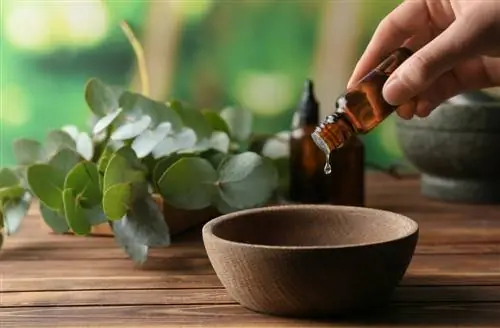- Author admin leonars@hobbygardeners.com.
- Public 2023-12-16 16:46.
- Last modified 2025-01-23 11:21.
Sulfur is extremely effective in the fight against mildew, but is subject to legal regulations due to its environmental consequences. Its use in small doses is legitimate on large commercial areas, but do you necessarily have to use sulfur in your home garden? This article explains how the element works and shows you recommended alternatives.

What alternatives are there to sulfur against mildew?
Sulphur is an effective remedy against powdery mildew and is often used as a wetting sulfur. Alternatives are biological sulfur extracts, milk, garlic, field horsetail, silica, baking soda, baking powder, nettle manure or natural predators such as ladybirds.
General information about sulfur
Sulfur is usually used against powdery mildew in the form of net sulfur. During production, the element is first heated and then crystallized in cold water. The agent dissolves well in water. However, it has no effect on downy mildew.
How it works
Under the influence of oxygen, light and moisture, the net sulfur on the leaves forms sulfur dioxide. If the fungi feed on this substance, it kills them from the inside out.
Make sulfur solution
Sulfur must always be heavily diluted before use. How to make a sulfur solution:
- dissolve 20-40 g of liver sulfur in 10 liters of water
- spray the product on affected leaves
- do not use the product in intense sunlight
Alternatives
In order to avoid the use of chemical agents, retailers now offer numerous environmentally friendly alternatives. On the one hand, you can also get organic sulfur extracts from specialist retailers. You can spray these on the plants from March to October. There is no danger for insects. It is also recommended to combat mildew with home remedies. Broths that you can easily make yourself are suitable for this. You can optionally use
- Milk or buttermilk
- Garlic or field horsetail
- Silica
- Baking soda or baking powder
- Stinging nettle manure
- other biologically based sprays
- natural predators such as ladybirds also drive away mildew
- Thought-out bed designs are also useful. Plant basil, chives, chervil, foxglove or garlic between particularly susceptible plants






